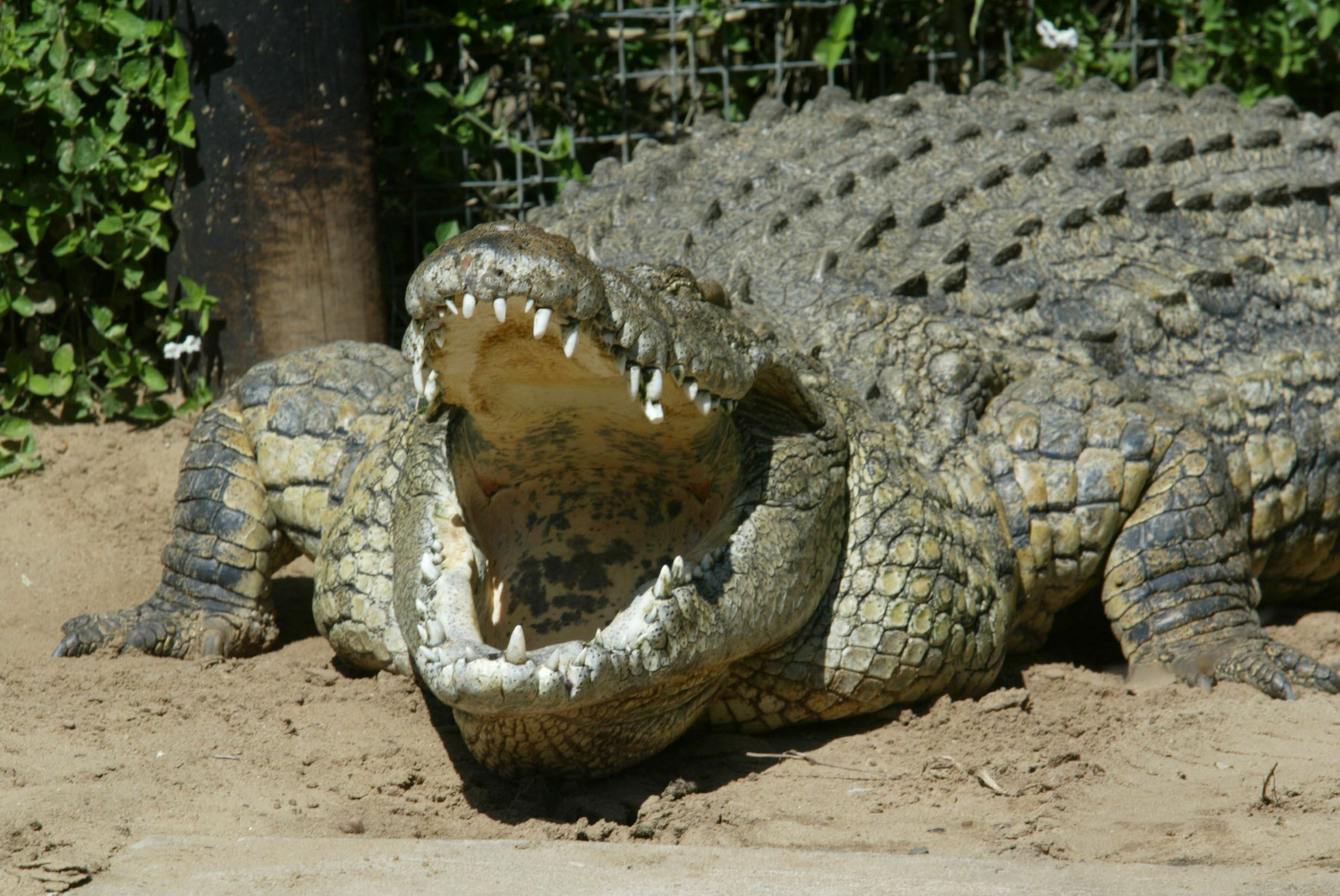
In 2014, 10 or so people were scouring Everglades National Park at the southern tip of Florida in an attempt to capture a crocodile.
Someone else had caught this particular reptile once before, back in 2012, but quickly released it because he didn't have the permit to keep it. Researchers with the University of Florida and elsewhere found out about the crocodile and went to hunt it down. "It took us two years to catch up to that sucker," says Frank Mazzotti, a professor at the university's Fort Lauderdale Research and Education Center. When the researchers located the crocodile in a canal, Mazzotti recalls, the question on everyone's mind was whether it was "going to come willingly." After several hours, the team zeroed in on the crocodile, with nets.
"That's a weird-looking crocodile," Mazzotti recalls thinking when he saw it for the first time. That's because it wasn't the typical American crocodile native to the area, but a Nile croc, native to parts of Africa.
Mazzotti and other researchers from the University of Florida studied that crocodile and three other strange-looking crocs captured between 2000 and 2014, and they recently published their findings in the journal Herpetological Conservation and Biology. Using a DNA analysis, they determined all four were related to Nile crocodiles, or Crocodylus niloticus, which are native to various parts of Africa. The researchers say these are the first documented cases of Nile crocodiles in Florida out of captivity.
The Nile crocodile looks almost identical to the American crocodile, Crocodylus acutus. But Nile crocodiles, the researchers say, can grow much larger than their American counterparts—up to 18 feet long. Their temperaments are quite different too. "The American crocodile is one of the most gentle species of crocodilian," Mazzotti says. On the other hand, when Nile crocs are in their native habitat, "fully grown adults are much more prone to looking at humans as food." American crocodiles don't eat humans.
The researchers note that between 2010 and 2014, Nile crocodiles in Africa were responsible for at least 354 deaths and 493 attacks on humans. Having them in Florida can also hurt native croc populations, which are suffering because of human impact, through competing with or preying on them, they wrote.
It's not time to panic just yet. Speaking with Newsweek via email, a spokeswoman for the Florida Fish and Wildlife Conservation Commission points out that because Nile crocodiles are exotic animals, Floridians must have permits for them and report if they escape. Only four have ever been reported to have done so, likely the same four the University of Florida researchers studied. "All of these animals were captured years ago and are believed to have come from the same facility," the spokeswoman says. That facility bred Nile crocodiles and said it would no longer do so, according to the spokeswoman.
In other words, it's not likely that Nile crocs are being born in the wild in the U.S. And "there is no evidence to suggest Nile crocodiles exist in the wild in Florida" at all, the spokeswoman adds. "No captive animals are unaccounted for." As of last week, 82 facilities in Florida held licenses for Class I Crocodylia, a designation that includes Nile crocs.
Still, the United States Fish and Wildlife Service, which lists the Nile crocodile as threatened because of its declining population in its native habitats, says the University of Florida findings are concerning.
"How these crocodiles got into Florida is a mystery, but their presence is both fascinating and somewhat alarming because there could be more out there, and they're potentially dangerous to humans," Ken Warren, a spokesman for the U.S. Fish and Wildlife Service, says by email.
Mazzotti concedes that his findings don't mean that Nile crocodiles are a full-blown invasive species. "All that really means is that they've escaped captivity, and it doesn't mean that they're established and breeding," he says. "We do what we do...so that when a species is introduced, you have an early detection, you have a rapid response, and you remove it, and none of those bad things happen."
Uncommon Knowledge
Newsweek is committed to challenging conventional wisdom and finding connections in the search for common ground.
Newsweek is committed to challenging conventional wisdom and finding connections in the search for common ground.
About the writer
Max Kutner is a senior writer at Newsweek, where he covers politics and general interest news. He specializes in stories ... Read more
To read how Newsweek uses AI as a newsroom tool, Click here.








